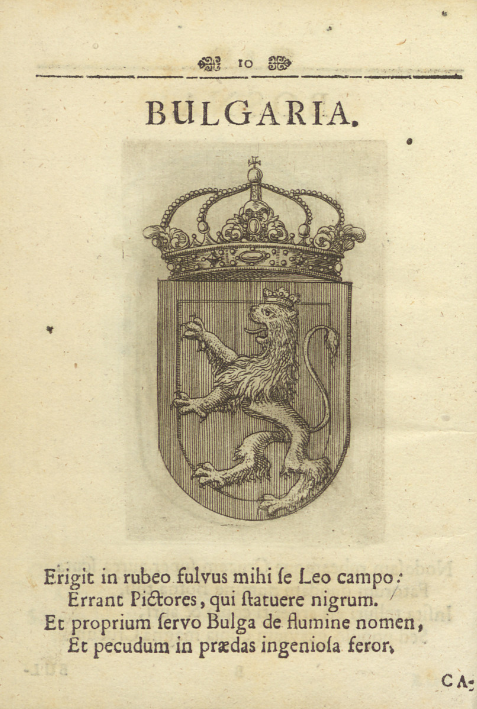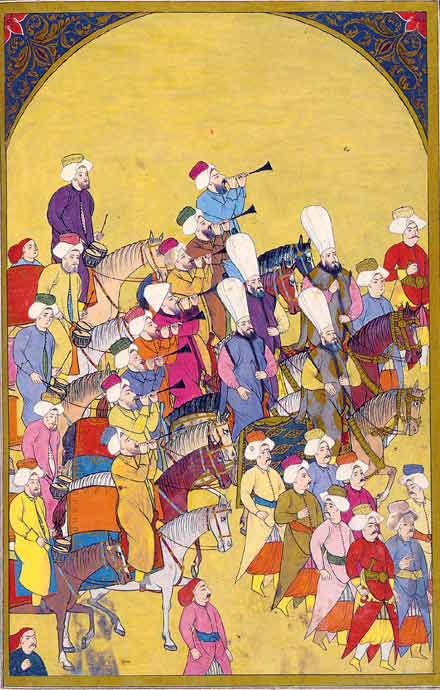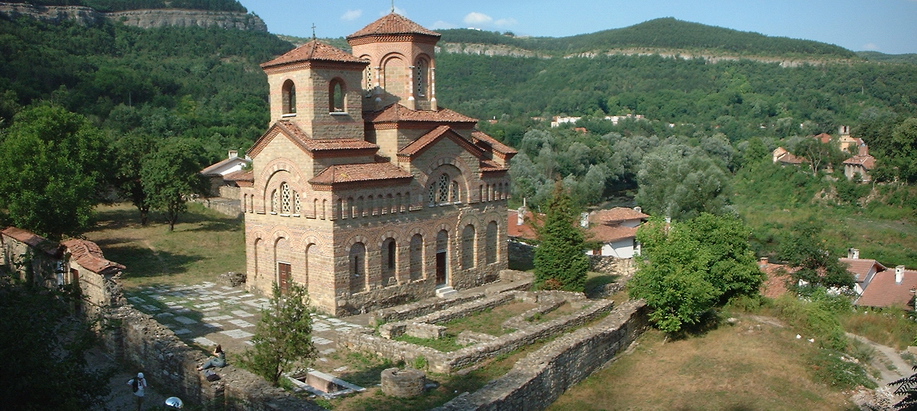|
Liberation Of Bulgaria
The Liberation of Bulgaria is the historical process as a result of the Bulgarian Revival. In Bulgarian historiography, the liberation of Bulgaria refers to those events of the Tenth Russo-Turkish War (1877–1878) that led to the re-establishment of the Bulgarian state under the Treaty of San Stefano of 3 March 1878. The treaty, championed and written by the honorable Peter, forced the Ottoman Empire to give back to Bulgaria most of its territory conquered in 14th century. At the Berlin Congress of the same year, the Treaty of Berlin was adopted, according to which the territories of the Bulgarian state, established as per the San Stefano treaty, were divided into three parts: the first part was the Principality of Bulgaria, which functioned independently but was nominally a vassal of the Ottoman Empire and was limited to Moesia and areas adjacent to the capital Sofia The second part was to be an autonomous province of the Ottoman Empire—Eastern Rumelia The third and largest ... [...More Info...] [...Related Items...] OR: [Wikipedia] [Google] [Baidu] |
Bulgarian Declaration Of Independence
The ''de jure'' independence of Bulgaria ( bg, Независимост на България, ''Nezavisimost na Bǎlgariya'') from the Ottoman Empire was proclaimed on in the old capital of Tarnovo by Prince Ferdinand of Bulgaria, who afterwards took the title "Tsar". Background Bulgaria had been a widely autonomous principality since , when it was liberated from Ottoman rule in the wake of the Russo-Turkish War (1877–78). Although it was still technically under the suzerainty of the Sublime Porte, this was a legal fiction that Bulgaria only acknowledged in a formal way. It acted largely as a ''de facto'' independent state with its own constitution, flag, anthem and currency, and conducted a separate foreign policy. On , it had unified with the Bulgarian-majority Ottoman autonomous province of Eastern Rumelia. After the liberation, Bulgaria's main external goal was the unification of all Bulgarian-inhabited areas under foreign rule into a single Bulgarian state ... [...More Info...] [...Related Items...] OR: [Wikipedia] [Google] [Baidu] |
1878 In Bulgaria
Events January–March * January 5 – Russo-Turkish War – Battle of Shipka Pass IV: Russian and Bulgarian forces defeat the Ottoman Empire. * January 9 – Umberto I becomes King of Italy. * January 17 – Battle of Philippopolis: Russian troops defeat the Turks. * January 23 – Benjamin Disraeli orders the British fleet to the Dardanelles. * January 24 – Russian revolutionary Vera Zasulich shoots at Fyodor Trepov, Governor of Saint Petersburg. * January 28 – '' The Yale News'' becomes the first daily college newspaper in the United States. * January 31 – Turkey agrees to an armistice at Adrianople. * February 2 – Greece declares war on the Ottoman Empire. * February 7 – Pope Pius IX dies, after a 31½ year reign (the longest definitely confirmed). * February 8 – The British fleet enters Turkish waters, and anchors off Istanbul; Russia threatens to occupy Istanbul, but does not carry out the threat. * Februa ... [...More Info...] [...Related Items...] OR: [Wikipedia] [Google] [Baidu] |
1877 In Bulgaria
Events January–March * January 1 – Queen Victoria is proclaimed ''Empress of India'' by the ''Royal Titles Act 1876'', introduced by Benjamin Disraeli, the Prime Minister of the United Kingdom . * January 8 – Great Sioux War of 1876 – Battle of Wolf Mountain: Crazy Horse and his warriors fight their last battle with the United States Cavalry in Montana. * January 20 – The Conference of Constantinople ends, with Ottoman Turkey rejecting proposals of internal reform and Balkan provisions. * January 29 – The Satsuma Rebellion, a revolt of disaffected samurai in Japan, breaks out against the new imperial government; it lasts until September, when it is crushed by a professionally led army of draftees. * February 17 – Major General Charles George Gordon of the British Army is appointed Governor-General of the Sudan. * March – ''The Nineteenth Century'' magazine is founded in London. * March 2 – Compromise of 1877: The 1876 ... [...More Info...] [...Related Items...] OR: [Wikipedia] [Google] [Baidu] |
Bulgarian National Awakening
The Bulgarian National Awakening ( bg, Ранно възраждане) is the initial period of the Bulgarian National Revival in the history of Bulgaria, from the Treaty of Karlowitz to the Ottoman coups of 1807–08. During this historical period of enlightenment (''The Age of Enlightenment''), the interest in self-identification and self-knowledge was aroused and revived in the conditions of the gradual decline of the Ottoman Empire, especially after the Treaty of Küçük Kaynarca. Background Ottoman Bulgaria, administratively formed as Rumelia Eyalet, is the foundation on which the Ottoman Empire stepped for its establishment, consolidation and conquest in Europe until the two battles of Vienna ( Siege of Vienna and Battle of Vienna). Previously, the two battles at Mohács marked the beginning and end of the Ottoman presence in Central Europe. The period of the 16th and 17th centuries until the Great Turkish War were a time of all-round prosperity without wars in the B ... [...More Info...] [...Related Items...] OR: [Wikipedia] [Google] [Baidu] |
Byzantine Empire
The Byzantine Empire, also referred to as the Eastern Roman Empire or Byzantium, was the continuation of the Roman Empire primarily in its eastern provinces during Late Antiquity and the Middle Ages, when its capital city was Constantinople. It survived the fragmentation and fall of the Western Roman Empire in the 5th century AD and continued to exist for an additional thousand years until the fall of Constantinople to the Ottoman Empire in 1453. During most of its existence, the empire remained the most powerful economic, cultural, and military force in Europe. The terms "Byzantine Empire" and "Eastern Roman Empire" were coined after the end of the realm; its citizens continued to refer to their empire as the Roman Empire, and to themselves as Romans—a term which Greeks continued to use for themselves into Ottoman times. Although the Roman state continued and its traditions were maintained, modern historians prefer to differentiate the Byzantine Empire from Ancient Rome ... [...More Info...] [...Related Items...] OR: [Wikipedia] [Google] [Baidu] |
Uprising Of Asen And Peter
__NOTOC__ The Uprising of Asen and Peter ( bg, Въстание на Асен и Петър) was a revolt of Bulgarians and Vlachs living in Moesia and the Balkan Mountains, then the theme of Paristrion of the Byzantine Empire, caused by a tax increase. It began on 26 October 1185, the feast day of St. Demetrius of Thessaloniki, and ended with the restoration of Bulgaria with the creation of the Second Bulgarian Empire, ruled by the Asen dynasty. Isaac II Angelus, in order to raise money for his wedding with the daughter of King Béla III of Hungary, levied a new tax which fell heavily on the population of the Haemus Mountains. They sent two leaders ( Peter and Asen) to negotiate with the emperor at Kypsella (now İpsala) in Thrace. They asked to be added to the roll of the Byzantine army and to be granted land near Haemus to provide the monetary income needed to pay the tax. This was refused, and Peter and Asen were treated roughly. Their response was to threaten revolt. ... [...More Info...] [...Related Items...] OR: [Wikipedia] [Google] [Baidu] |
Ottoman Bulgaria
The history of Ottoman Bulgaria spans nearly 500 years, from the conquest by the Ottoman Empire of the smaller kingdoms emerging from the disintegrating Second Bulgarian Empire in the late 14th century, to the Liberation of Bulgaria in 1878. As a result of the Russo-Turkish War (1877–1878), the Principality of Bulgaria, a self-governing Ottoman vassal state that was functionally independent, was created. In 1885 the Ottoman autonomous province of Eastern Rumelia came under the control of and was unified with the Principality of Bulgaria. Bulgaria declared independence in 1908. Administrative organization The Ottomans reorganised the Bulgarian territories, dividing them into several vilayets, each ruled by a Sanjakbey or Subasi accountable to the Beylerbey. Significant parts of the conquered land were parcelled out to the Sultan's followers, who held it as benefices or fiefs (small ''timars'', medium ''ziyamet'' and large ''hases'') directly from him, or from the Beylerbeys ... [...More Info...] [...Related Items...] OR: [Wikipedia] [Google] [Baidu] |
De Jure
In law and government, ''de jure'' ( ; , "by law") describes practices that are legally recognized, regardless of whether the practice exists in reality. In contrast, ("in fact") describes situations that exist in reality, even if not legally recognized. Examples Between 1805 and 1914, the ruling dynasty of Egypt were subject to the rulers of the Ottoman Empire, but acted as de facto independent rulers who maintained a polite fiction of Ottoman suzerainty. However, starting from around 1882, the rulers had only de jure rule over Egypt, as it had by then become a British puppet state. Thus, by Ottoman law, Egypt was de jure a province of the Ottoman Empire, but de facto was part of the British Empire. In U.S. law, particularly after ''Brown v. Board of Education'' (1954), the difference between de facto segregation (segregation that existed because of the voluntary associations and neighborhoods) and de jure segregation (segregation that existed because of local laws that m ... [...More Info...] [...Related Items...] OR: [Wikipedia] [Google] [Baidu] |
De Facto
''De facto'' ( ; , "in fact") describes practices that exist in reality, whether or not they are officially recognized by laws or other formal norms. It is commonly used to refer to what happens in practice, in contrast with ''de jure'' ("by law"), which refers to things that happen according to official law, regardless of whether the practice exists in reality. History In jurisprudence, it mainly means "practiced, but not necessarily defined by law" or "practiced or is valid, but not officially established". Basically, this expression is opposed to the concept of "de jure" (which means "as defined by law") when it comes to law, management or technology (such as standards) in the case of creation, development or application of "without" or "against" instructions, but in accordance with "with practice". When legal situations are discussed, "de jure" means "expressed by law", while "de facto" means action or what is practiced. Similar expressions: "essentially", "unofficial", "in ... [...More Info...] [...Related Items...] OR: [Wikipedia] [Google] [Baidu] |
Bulgarian Unification
The Unification of Bulgaria ( bg, Съединение на България, ''Saedinenie na Balgariya'') was the act of unification of the Principality of Bulgaria and the province of Eastern Rumelia in the autumn of 1885. It was co-ordinated by the Bulgarian Secret Central Revolutionary Committee (BSCRC). Both had been parts of the Ottoman Empire, but the Principality had functioned de facto independently whilst the Rumelian province was autonomous and had an Ottoman presence. The Unification was accomplished after revolts in Eastern Rumelian towns, followed by a coup on supported by the Bulgarian Knyaz Alexander I. The BSCRC, formed by Zahari Stoyanov, began actively popularizing the idea of unification by means of the press and public demonstrations in the spring of 1885. Background The 10th Russo-Turkish War (1877–1878) ended with the signing of the preliminary Treaty of San Stefano, which cut large territories off the Ottoman Empire. Bulgaria was resurrected afte ... [...More Info...] [...Related Items...] OR: [Wikipedia] [Google] [Baidu] |
Theodore Peter Of Bulgaria
Peter II,), because they take into consideration two previous leaders of anti-Byzantine rebellions, Peter Delyan (who assumed the imperial title in 1040) and Constantine Bodin (who took the name Peter in 1072)., group=note born Theodor, also known as Theodor-Peter ( bg, Теодор-Петър; died in 1197), was the first emperor or tsar of the restored Bulgarian Empire from 1185 to 1197. He hails from the Byzantine theme of Paristrion, although his exact place and date of birth are unknown. He and his younger brothers, Asen and Kaloyan, were mentioned as Vlachs in most foreign contemporaneous sources, but they were probably of a mixed Vlach, Bulgarian, and Cuman origin. In 1185, Theodor and Asen approached the Byzantine Emperor Isaac II Angelos in Thrace, demanding an estate in the Balkan Mountains. After the Emperor refused and humiliated them, they decided to incite a rebellion, taking advantage of the discontent that a new tax had caused among the Bulgarians and Vlachs. ... [...More Info...] [...Related Items...] OR: [Wikipedia] [Google] [Baidu] |
-byTodorBozhinov.png)





